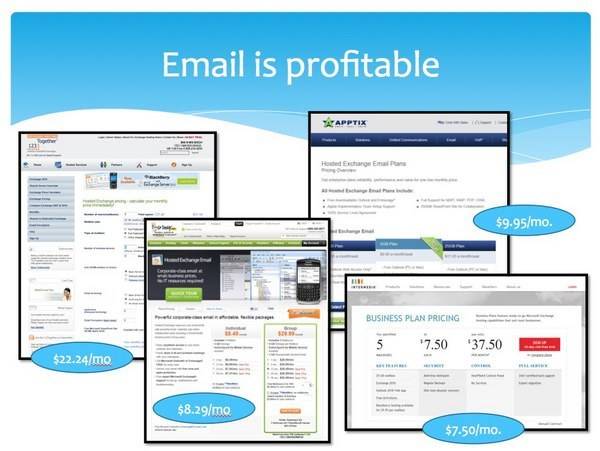Tally up the total number of searches on Google, Yahoo and Bing and you have about 3.5 billion searches per day. It’s estimated that Twitter has about 300 million accounts and Facebook claims more than 750 million active users.As impressive as those numbers are, though, they’re a drop in a bucket compared to email – which is estimated at 294 billion per day.

That, says Jeff Hardy, is why Google and Microsoft really want your email. Not because of the numbers, per se, but because of what the numbers represent.
Hardy, vice president of SmarterTools, says that Microsoft wants email because it’s profitable – and wants to convince companies that email is expensive to provide. Google, on the other hand, presents email as free, because it wants the information that comes with. And Facebook is trying to get into the email game because it’s the only way to continue its growth in the face of flattening usage.
Other companies should be competing for that business, says Hardy, and that email is dirt cheap to provide. According to his presentation for HostingCon 2011, Hardy says that you can get full enterprise-class email for less than $0.04 per mailbox, or Exchange replacement mailboxes for less than $0.39 per mailbox. But he says that each account is worth up to 10 people on average, and providers get to market their products and services to all of those users. Passing up email is passing up an opportunity to create loyalty.
Hardy seems to have a good point. Two, actually. One is that email gets overlooked compared to the new hotness(es) like Twitter or Facebook. But we still do much, much more via email. Perhaps too much, but that’s a topic for another post. The other is that companies that offer hosting (his audience at HostingCon 2011) should be focused on providing email and getting it right. There’s plenty of room, even today, for solid email hosting plans and for companies to wrangle email into much more business.


















